SHA and ACUA 2023 Election Results
- SHA PRESIDENT
- TREASURER
- BOARD OF DIRECTORS
- NOMINATIONS AND ELECTIONS COMMITTEE
- ACUA BOARD OF DIRECTORS
SHA President
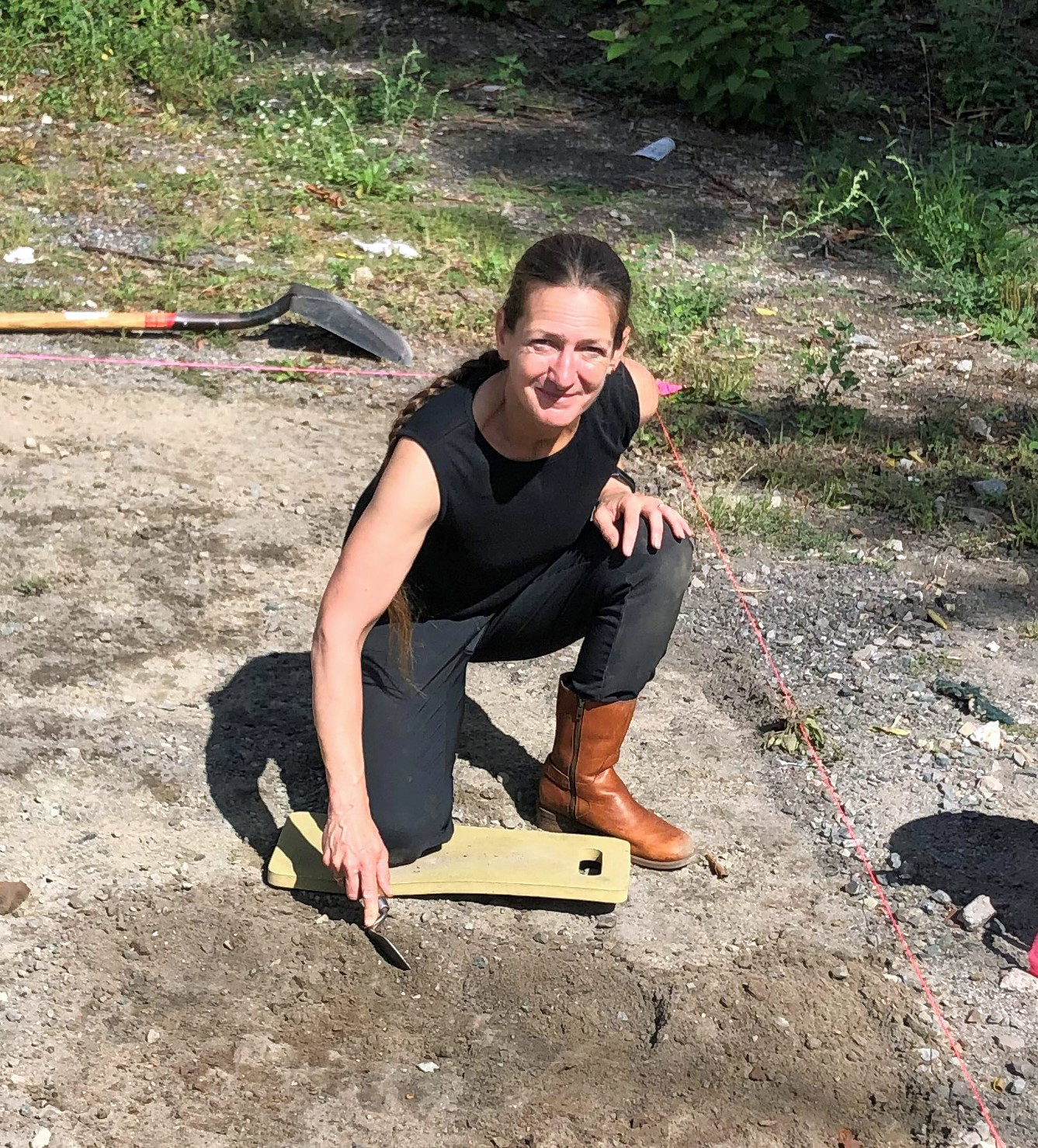
Name: Audrey Horning
Present Position: Forrest D. Murden Jr. Professor and Chair, Department of Anthropology, William & Mary; Fellow, Senator George J. Mitchell Institute for Global Peace, Security and Justice and Professor of Archaeology, Queen’s University Belfast
Education: PhD, Historical Archaeology, University of Pennsylvania 1995; MA, American Civilization, University of Pennsylvania 1990; BA Anthropology and History, William & Mary, 1989
Professional Service to SHA and Other Societies: SHA: Member since 1990; Board of Directors 2018-2021; Conference Co-Chair and Terrestrial Program Co-chair, Leicester UK, 2013; Associate Editor, Historical Archaeology, 2004–present; Member, Awards Committee, 2014–2017; Elected Member, Nominations Committee, 2012–2014; Intersociety Relations Committee; 2001 John L. Cotter Awardee.
Other societies/ roles: Society for Post-Medieval Archaeology (SPMA): Council Member, 2000–2017; Officer roles include Monograph Editor, 2012–2017; Secretary, 2006–2012; Newsletter Editor, 2004–2006; Website Manager, 2002–2004. Irish Post-Medieval Archaeology Group (IPMAG): Co-founder and Committee member, 2001–present, Officer roles include Secretary, Newsletter Editor. British Academy: Member of Reflections on Archaeology (steering group), 2015–2017. Royal Irish Academy, Member of Archaeology Committee 2014-2016. University Archaeology UK (steering group): Elected Member, 2015–2016
Other Service: United Kingdom Research Excellence Framework 2020-2022 Sub-panel 15, Archaeology. Elected Fellow of the Society of Antiquaries London and the Society of Antiquaries Scotland. Advisory Board Kilmartin House Museum, Kilmartin Glen, Scotland. Advisory Board Durham Institute for Medieval and Modern Studies. Advisory Board, Literacy Interactives. Editor, Archaeological Dialogues. Associate Editor, Current Anthropology. Peer Review College, Arts and Humanities Research Council (UK) 2009-2016. External assessor, Fundaçao para a Ciência e a Technologia (Portugal) 2019-2022.
Research Interests: Comparative colonialism in the Atlantic world, engaged archaeology, integration of archaeology and conflict transformation, archaeological theory and ethics.
Biographical Statement:
I have been an active member of SHA since 1990 and I take the responsibility of a nomination for President very seriously because I understand the nature of the commitment. I have held a range of leadership positions, currently as chair of my department but previously as a member of senior management at Queen’s University Belfast as Head of the School of Geography, Archaeology and Palaeoecology, responsible for a multimillion-pound yearly budget, management of over 70 academic, technical, and professional services staff, and oversight of more than 500 students. Fundamental to my research practice is an inclusive, engaged approach, working with and for communities rather than on them. I have worked in this manner on both sides of the Atlantic—principally in the U.S., UK and Republic of Ireland—giving me insight into both the global expansion of the discipline as well as its diverse regional and national expressions. As a university academic, I have worked across disciplines including anthropology, history, geography and archaeology. I have also worked across sectors, for the Colonial Williamsburg Foundation, with the National Park Service, in private-sector cultural resource management, and with charitable organizations including the Corrymeela peace centre (Northern Ireland). In addition to my service with SHA, I have worked hard to develop historical archaeology on the island of Ireland as a founding member of the Irish Post-Medieval Archaeology Group, while also serving the UK-based Society for Post-Medieval Archaeology in various capacities as a Council member from 2000-2017. As conference co-chair for SHA’s second non-North American annual conference held in Leicester, England in 2013, we sought to expand understandings of practice and research on both sides of the Atlantic and well beyond, bringing together scholars from over 50 countries and reaching individuals who would not typically be involved with SHA. My research itself builds on this transatlantic perspective by engaging directly with the contested historical legacies of early modern European expansion, and working to integrate archaeological evidence with processes of conflict transformation and restorative justice.
Given the qualifications and experience outlined in your biographical statement, what do you believe you can contribute to SHA if elected?
My transatlantic career has allowed me to engage not only with North American historical archaeology, but with the different contexts, forms of research, and development needs of Irish, British, and European postmedieval archaeology. I have recognized the shared colonial legacies that elevate the discipline in those countries to the detriment of others, and as a result, I have a deep commitment to broadening the discipline by acknowledging and addressing those legacies. I have seen firsthand how archaeology can play a critical role in contemporary conversations and conflict transformation, and as such I am very keen to see the society continue to develop its leading role in encouraging and facilitating ethical and community-inclusive practice. Given my background working across disciplines, in multiple countries, across sectors, and with a wide range of community partners, I believe I can bring a valuable perspective to help guide and expand the actions, concerns, and visibility of the society. Crucially, a society must be strong, healthy, and well-managed to achieve anything, and here I would draw usefully upon my considerable experience in institutional leadership and financial management to work productively with the Executive Office, the Board, the committees, and the membership as a whole.
If elected to serve SHA, what priorities would you emphasize?
My key priority is to help lead the continuing development of SHA as a body with a conscience, willing to step up and be seen and heard on matters of concern to our discipline, our members, our community partners, society at large, and to those long gone for whom we speak as archaeologists. In recent years the society has taken on more of an activist, outward-looking stance which I wholeheartedly support. To be successful in activism, however, also requires constant evaluation and self-critique, to transform the Society itself into a more inclusive, more diverse, and therefore more dynamic and relevant entity. Pragmatically, to achieve such transformation also requires that the society be well run and financially stable, thus able to take risks and develop new initiatives without fear of destabilization. That requires work to attract and retain members, enthuse members to be active and engaged, and to respond to members’ needs and interests in an inclusive, accessible, and nimble fashion. Like many in SHA, I believe that our work and our knowledge deserve greater external visibility and I would aim to continue to build a strong media presence alongside supporting and promoting the critical government advocacy work of the society.
Please include a statement on your commitment to Diversity, Equity, Inclusion, Belonging, and Mattering (DEIB&M).
My practice as an archaeologist and scholar has always been oriented to social justice, whether it be integrating archaeology with conflict transformation and working to transcend the sectarian divide in Northern Ireland or working for and with descendant communities in North America, to challenge racism, oppression, and ongoing marginalization. Professionally, I have served in a range of DEIB&M roles, including on the university-level steering committee for Athena SWAN (which covered DEIB&M concerns) at Queen’s University Belfast and chairing the Anthropology Department Diversity committee at William & Mary. Experience, and listening and learning from others has instilled in me a cynicism about the performativity of institutional diversity regimes that serve only to reinforce structural inequality. Change comes only through self-knowledge, self-reflection, and self-critique. On a personal level, I acknowledge my own positionality as a white woman, and the attendant necessity of stepping aside, listening, and learning from others. Representing historical archaeology, SHA has a responsibility to continue to honestly address the many disciplinary legacies, practices, and unconscious biases that perpetuate white supremacy, Eurocentrism, patriarchy, and heteronormativity, among other inequities. Our very subject of study provides us with a formidable and highly relevant understanding of the origins of these biases, and it is incumbent upon us to deploy our knowledge as the basis for positive social action. As president, I will not only continue to support the many positive actions being taken by SHA (for example, anti-racism training and policies on harassment), I will work to encourage a constant culture of evaluation and honest critique, and a willingness to listen, to learn, and to change. I will also work across multiple constituencies to identify concrete actions to not only improve the society in the diversity of its membership, but crucially, to situate SHA as a visible and positive contributor to wider restorative justice efforts.
SHA Treasurer
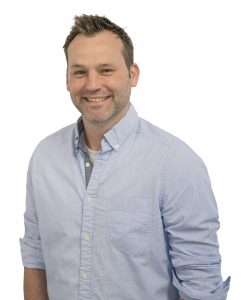
Name: Kevin C. Bradley
Present Position: : Principal Investigator/Branch Manager, New South Associates, Inc.
Education: M.A., Public Anthropology, American University; B.A., History, University of Mary Washington
Professional Service to SHA and Other Societies: Fairfax County History Commission, Commissioner; Society for Historical Archaeology, Member; Society for American Archaeology, Member; Middle Atlantic Archaeological Conference, Member; Council of Virginia Archaeologists, Member
Research Interests: Colonial archaeology, battlefield archaeology, archaeology of the Mid-Atlantic, urban archaeology, public outreach and engagement, GIS, human-animal relationships
Biographical Statement:
I’ve been a professional archaeologist for twelve years, primarily operating in the mid-Atlantic. My experience includes public-facing programs and regulatory work, but the bulk of my career has been spent in CRM. The last 10 years I was employed by several CRM companies between Pennsylvania and Virginia, including my current employer, New South Associates, Inc. since 2017. In 2021, I was responsible for managing NSA’s expansion into Virginia and today I serve as Principal Investigator and Branch Manager for the Virginia office in Fairfax County. My responsibilities as the lead in the Virginia office include managing a variety of projects for private clients to state and federal agencies to their successful completion, balancing the economic constraints of contract work with the ethical and professional obligations of cultural resource management. Ensuring the mental, personal, and physical well-being of my staff is also a responsibility I consider of upmost importance. With the support of NSA, I strive to create an environment in CRM that supports both professional and personal fulfillment, ultimately leading to rewarding and long-lasting careers.
Given the qualifications and experience outlined in your biographical statement, what do you believe you can contribute to SHA if elected?
If elected, I believe I could contribute to SHA in several ways. First and foremost, I understand the benefits that membership in SHA provides, not only for the society itself, but for the individual archaeologist. Having been one of only two archaeologists to graduate from my master’s program in a graduating year, I am familiar with the value that professional organizations possess in creating a community of support for new professionals in the field – a value that I would champion to prospective members.
As a Principal Investigator and Branch Manager, I am also intimately aware of the financial aspects of conducting cultural resource management in today’s economic climate. As acknowledged throughout the industry, the economic and human resource challenges faced by companies and professionals alike are increasing as the demand for our services is rising. I am responsible for balancing the needs of clients, ensuring the long-term financial health of my branch, and attracting and retaining qualified and highly skilled professionals. When done successfully, not only is the industry stronger, but the preservation of our cultural heritage on the whole benefits. I believe the perspective my role provides would prove beneficial to the society and its members
If elected to serve SHA, what priorities would you emphasize?
Membership. Accomplishing the stated strategic goals of SHA is challenging without a diverse and engaged membership. That is why I consider working to expand membership in SHA a top priority and one that I would emphasize if elected. An increase in membership, however, would theoretically follow from an increase in professionals, which is why I would encourage and support programs that grow our field by educating and training archaeologists.
Professional Development. I believe a critical aspect in developing professional archaeologists, however, is understanding the incentives or roadblocks of choosing or continuing this career path. Much has been written and debated on the reason why the CRM industry alone is facing a crucial labor shortage over the next decade. As SHA treasurer, I would emphasize fully engaging in this debate and taking steps to address the identified disincentives.
Economics and Advocacy. Personally, I have witnessed the challenges of retaining dedicated and skilled archaeologists who find the financial burdens of progressing in the field untenable. I believe that personal economics is one of the largest factors in an individual’s decision to enter or remain in the field. As treasurer, I would encourage SHA to prioritize efforts in better understanding the root cause of financial strains placed on prospective or new archaeologists. This would likely include conducting outreach and advocacy at various levels of government, educational institutions, and in our own ranks.
Fiscal Responsibility. As treasurer, my most significant priority is to ensure the financial health of the organization. While I consider the priorities stated above as worthy causes that I hope to purse, ultimately, the main role of the treasurer is to provide a complete and transparent accounting of SHA’s finances and ensure the organization’s long-term success – a goal I am very much committed to.
Please include a statement on your commitment to Diversity, Equity, Inclusion, Belonging, and Mattering (DEIB&M).
Archaeology is continually diversifying in terms of professionals and subject areas, creating a more inclusive and equitable understanding and retelling of our past. Likewise, SHA strives to become an ever more welcoming organization, representing diversity of ethnicity, indigeneity, gender identities, religion, sexual orientation, and economic position. I am fully committed to these values and would embrace the spirit of inclusivity as an officer in SHA.
BOARD OF DIRECTORS
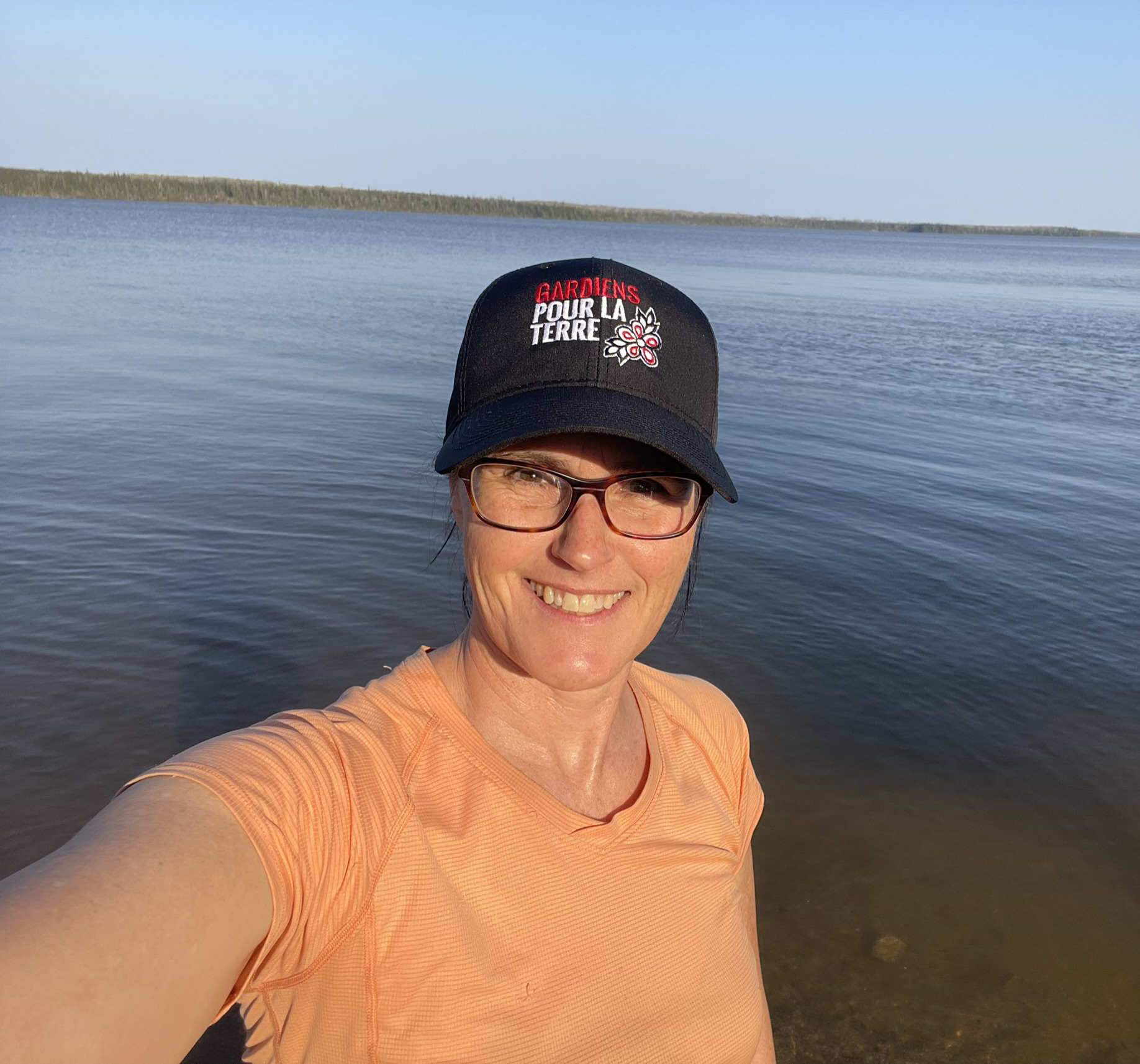
Name: Allison Bain
Present Position: Professor of Archaeology, Université Laval, Québec, Canada
Education: Honours BA, Wilfrid Laurier University, Canada, M.Sc. University of Sheffield, England, Ph.D. Université Laval, Canada, Post-doctoral fellow, Fiske Center University of Massachusetts-Boston.
Professional Service to SHA and Other Societies: SHA: 2002-2010 Québec Coordinator for the SHA Bulletin, 2014 SHA Terrestrial Programme Organizer, Conference Committee member, Plenary Session Chair.
Other societies: Council for Northeast Historical Archaeology (CNEHA), Board Member 2008-2013, CNEHA Conference Chair 2009, Editorial Committee Northeast Historical Archaeology (2013-2016), student paper prize committee (2009-2014); Canadian Archaeological Association, member Weetakluk prize committee (2014, 2015, 2017, 2021); Scientific advisor, Archéolab project, Pointe-à-Callière Museum of Archaeology (2018-2019); Committee member, Centre for the Interpretation of Urban life in Québec City (2010-2015)
Community volunteer service: Citadel Foundation, Board Member (2017-2023), President of the Education Committee (2020-present)
Université Laval: Director of CELAT Research Centre (2010-2011, 2019-2020), University Research Commission member (2005-2008), CELAT Research Centre Board of Directors (2010-2012, 2013-2014, 2020-2022), Departmental Council member (2004-2006, 2009-2013) Archaeology Programme Director (2021-2022), Archaeology Programme Committee member (2006-2008, 2013-2020), EleV Indigenous Educational Programme Committee member and Archaeology Codirector (2021-present).
Research Interests: Environmental Archaeology, Field School Pedagogy, Indigenous-centred archaeologies, Historical Archaeologies of Northeastern North America and the Caribbean
Biographical Statement:
I am a professor of archaeology at Université Laval in Québec where I have taught since 2002. I am also the director of the Laboratory of Environmental Archaeology (2003-present) which was, until recently, the only North American laboratory that specialized in both archaeoentomology and archaeobotany. I have taught Université Laval’s historical archaeology field school since 2003 and became director in 2006. In 2019, I also took over the Directorship of the Archaeometry Research Group for which I am the Principal Investigator on our grant. This is a Québec-based network of 14 researchers based in four universities along with the Waban-aki First Nation. I was director of the CELAT research centre at Université Laval for two years and for the last 20 years I have also run a Friday afternoon speaker series, Les archéo-vendredis, where we celebrate the scholarship of our students and invite guest lectures to present their work.
I have several areas of interest. My laboratory research focuses on human-environmental interactions in Northeast and the Caribbean using the methodologies of environmental archaeology. I am also interested in the archaeology of rural landscapes around the Québec City region (18th and 19th centuries) which I explore via the annual field school excavations. Over the last five years I have developed research and training collaborations with two Indigenous communities in the province of Québec, and am currently developing, with our First Nations training office and Indigenous students in the archaeology programme, a training programme designed for Indigenous community members.
Given the qualifications and experience outlined in your biographical statement, what do you believe you can contribute to SHA if elected?
As a bilingual (English and French) Canadian archaeologist with considerable international exposure, I will bring international perspective to the SHA Board. Over the last forty years, I have had the opportunity to do field work on large teams in Canada (Ontario, Québec, Territory of Nunavut), the Caribbean and French Guyana, while my research collaborations span Greenland, Iceland, Canada, France, and the United States. I have worked in both field and laboratory settings in pre-contact, historical and environmental archaeology – my enthusiasm for and experience – working in diverse and often multilingual teams makes me a good collaborator. In addition, the experience of running archaeological projects and leading our field school, directing both a large research centre and a research team, and sitting on several different university and community committees annually has provided me with a broad range of administrative experiences and governance practices. These experiences reinforce my commitment to governance grounded in transparency and collegiality.
If elected to serve SHA, what priorities would you emphasize?
As I have learned, taught and conducted research in my second language since 1995, I am sensitive to the importance of continually expanding SHA membership beyond a primarily anglophone base, and believe we should continue to encourage scholarship and inclusion of community members that do not have English as their primary language. If elected I hope to work on the Journal and Co-Publications Editorial Advisory Committee.
As an educator and field school director, I strongly believe in the importance of public outreach to all communities as a means to educate and encourage relationships with the past in all its forms. I would be interested in working with both the UNESCO and the Public Education and Interpretation Committees. I would endeavour to enhance participation and collaborations that foster involvement and training opportunities with members of Indigenous, minority and descendant communities.
Please include a statement on your commitment to Diversity, Equity, Inclusion, Belonging, and Mattering (DEIB&M).
I have had access to the privileges accorded to me as a white woman working in academia for much of my adult life. Different communities in the Academy may experience both systemic and structural barriers based on their gender expression, ethnicity, linguistic and socio-economic backgrounds and sexual orientation – we do not all share the same educational experience on university campuses. In my work, I attempt to dismantle some of these barriers, prioritizing inclusivity in supporting students and colleagues who have not been afforded the privileges I have been. For example, in my university service work, I regularly volunteer for committees where I think my contribution can help promote diversity in all of its forms (for example BOD memberships, hiring committees). As the archaeology programme director and as field school director school, I often guide students in order to access resources and services that impact many aspects of their lives (sexual orientation, gender expression, socio-economic challenges, mental health services). Finally, in the region where I live, First Nations communities are often excluded from archaeology and I have chosen to prioritize this issue in my work. Over this past year, I helped initiate a discussion group for Indigenous students in our programme in order to critically examine our programme’s content. I am also developing curricula with Indigenous community members in order to train Indigenous archaeologists as a tool of both cultural empowerment and heritage management. I believe that diversity is important as the richness of diverse lived experiences translates into environments where differing perspectives and experiences enhance both learning and community building.
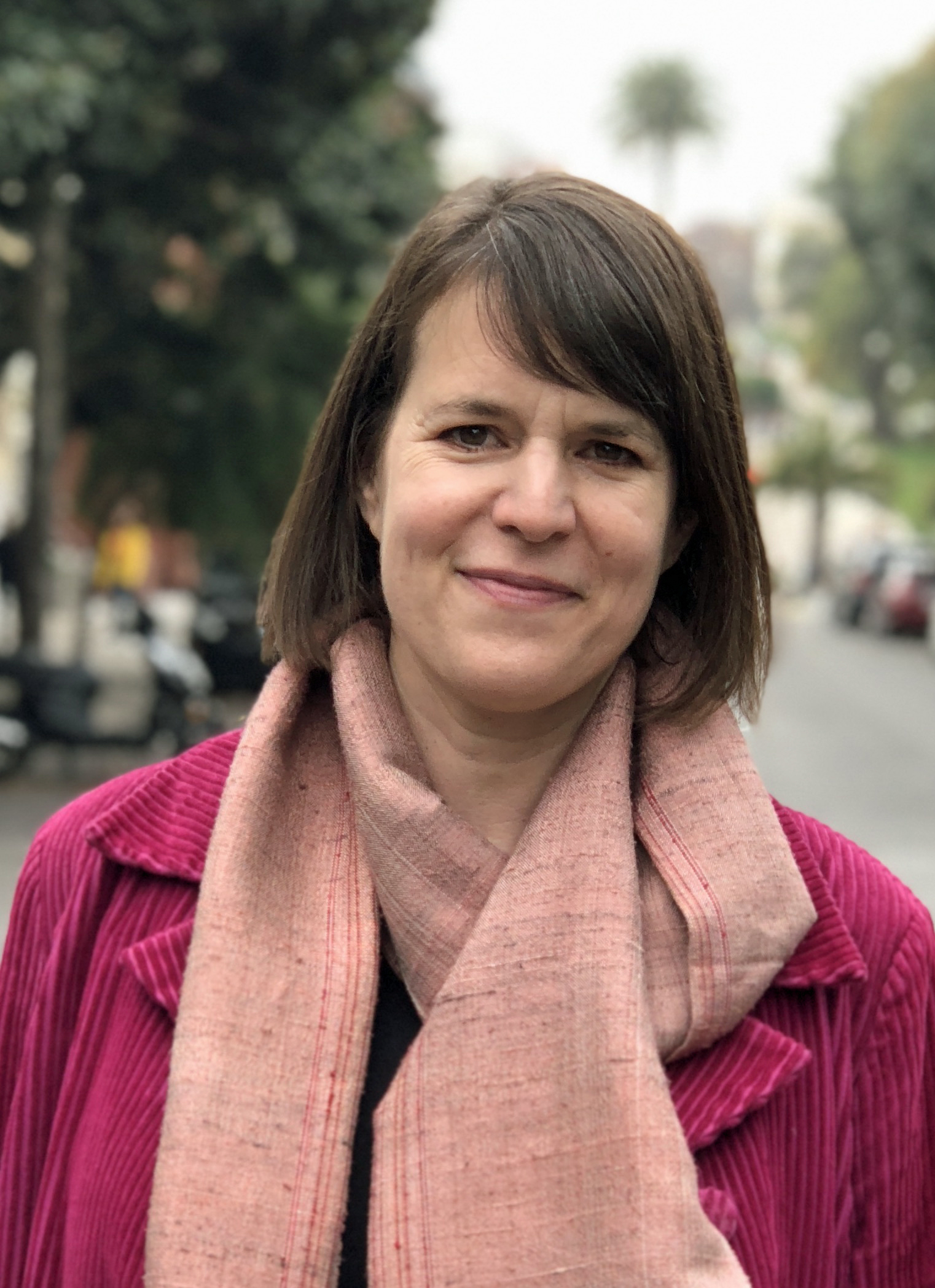
Name: Carolyn White
Present Position:Professor of Anthropology, University of Nevada, Reno
Education: Ph.D., Boston University, Archaeology; Certificate in Museum Studies, Boston University; B.A., Oberlin College, Archaeological Studies
Professional Service to SHA and Other Societies: Chair of Academic and Professional Training Committee (2016-2021), Chair of Student Paper Competition (2013-2019), Associate Editor, Historical Archaeology (2016-present), Member of Academic and Professional Training Committee (2010-2014; 2021-present); Steering Committee Contemporary and Historical Archaeology and Theory Member (2014-present)
Research Interests: : North America, Europe, Japan; material culture; contemporary archaeology; household archaeology; museum studies; cultural heritage studies; landscape archaeology; identity, individual, and group affiliation; method and theory in archaeology; 17th-21st century
Biographical Statement:
I am honored to be nominated to the SHA Board. I am Professor of Anthropology at the University of Nevada, Reno where I hold the Mamie Kleberg Chair and direct programs in Museum Studies and Historic Preservation.
My research and teaching focuses on cultural heritage, the materiality of daily life, and the built environment in the recent past and present. I have studied numerous archaeological sites in the mainland US, Hawaii, England, Japan, and Germany and now work within the context of contemporary and active site archaeology. I have written books and articles on topics ranging from the intersection of art and archaeology, the ephemerality of artist studios, the materiality of individual lives, the built environment of Black Rock City, and the archaeology of the present. My most recent books are The Archaeology of Burning Man (University of New Mexico Press 2020) and The Archaeology of Place and Space in the West (University of Utah Press, 2022), which I co-edited with Emily Dale.
Given the qualifications and experience outlined in your biographical statement, what do you believe you can contribute to SHA if elected?
I have been a member of the Society for Historical Archaeology since my days as a very green graduate student and have enjoyed working with the society for nearly thirty years now. I chaired the Academic and Professional Training Committee between 2016 and 2021 and have been a member of that committee since 2010. As an academic who has the privilege of advising and teaching undergraduate and graduate students in both theoretically-oriented and practice based courses, I am cognizant of the many needs of students who are moving into the profession. Students’ needs are constantly evolving, as is the world these students enter when they complete their degrees. Increasing student involvement is critical to the health and vitality of the organization and has been a focus of mine over the course of my professional career. As someone who works in many regions and over many time periods, I have had the opportunity to witness firsthand the expansion of historical archaeology around the world and think that it is vital to continue to raise the profile of the SHA as historical archaeology spreads further through archaeological communities.
If elected to serve SHA, what priorities would you emphasize?
As a member of the SHA Board, my top priority will be student engagement. Students are the lifeblood of our organization, and engaged students are future active professional members. Increasing and fostering student participation in all aspects of historical archaeology at conferences is one of the most important things the SHA can do. I will prioritize affordable conference fees, workshops, and roundtables and will work with conference organizers and student members to schedule formal and informal training, mentoring, and networking opportunities. Further, it is important to me that multiple tracks of professional employment are emphasized and valued: academic, CRM, federal and state agency, local government, museum, and private sector. It is critical that the SHA be a place that welcomes and encourages students from all backgrounds, regions, and research interests.
Please include a statement on your commitment to Diversity, Equity, Inclusion, Belonging, and Mattering (DEIB&M).
As a board member, I will maintain my ongoing commitment to promoting diversity in all of its forms in all of my actions and activities and will pursue increased diversity within the SHA at all levels. A key role for the board is to identify individuals that are underrepresented in SHA and encourage wider participation, and in particular I will focus on student membership and leadership roles. Further, the blend of professionals from the CRM community, public facing positions in local, state, and federal government, and academic contexts is an essential strength of SHA membership and outreach to each of these communities is key to increasing DEIB&M efforts. I would like to see the leadership of SHA reflect the varied makeup of professional roles that make our organization both strong and relevant.
NOMINATIONS AND ELECTIONS COMMITTEE
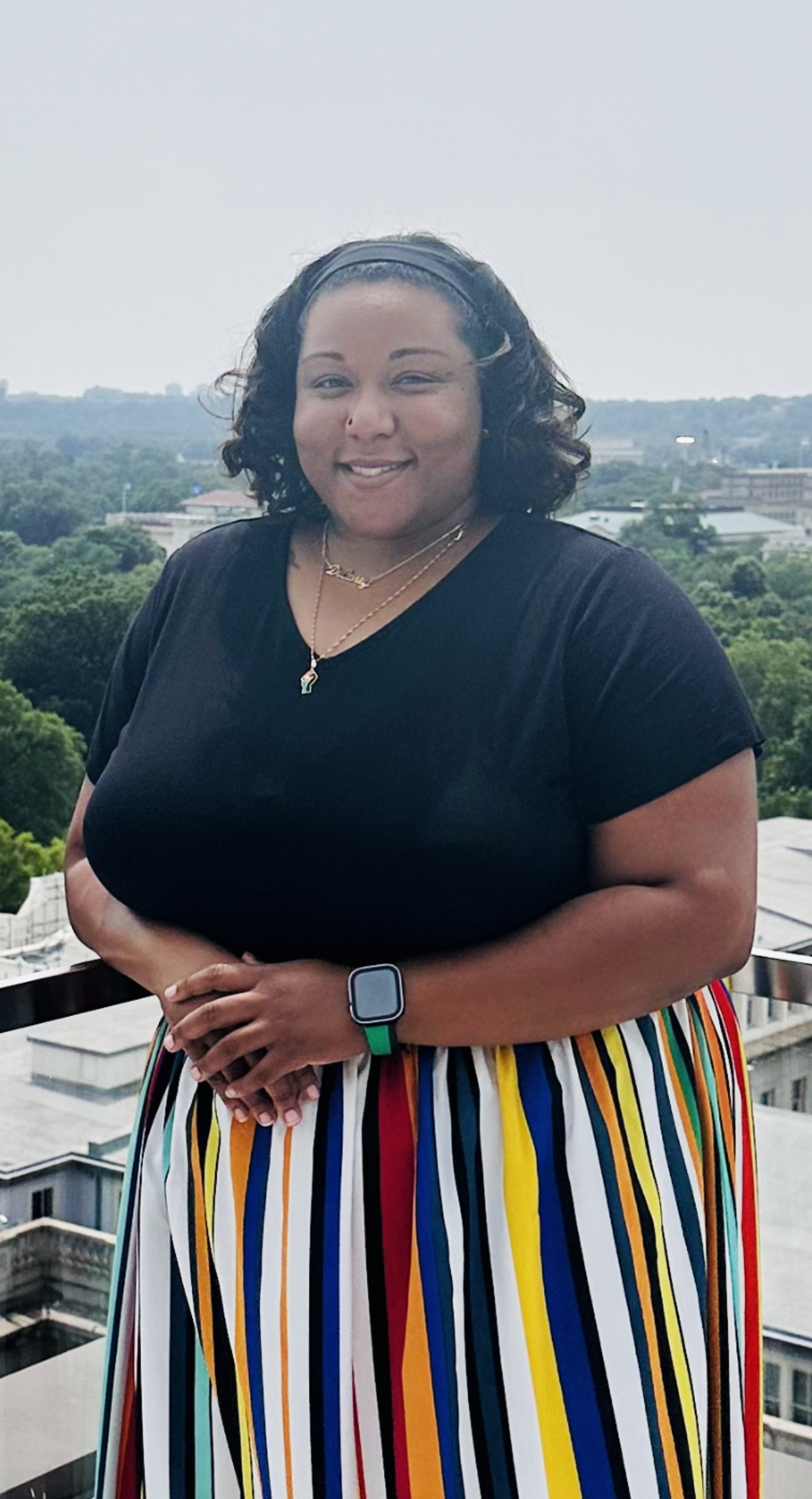
Name: Mia L. Carey
Present Position: GMAC Chair
Education: PhD, Anthropology, University of Florida (’17); MA, Anthropology, University of Florida (’14), Interdisciplinary Certificate and Concentration in Historic Preservation, University of Florida (’14); Dual BA, Anthropology and Sociology, Howard University (’11)
Professional Service to SHA and Other Societies: SHA: GMAC Member (2012-Present); GMAC Chair (2020-Present); Academic and Professional Training Committee;
Other societies: Society for Black Archaeologists
Other service: Previously served on the “Documenting Sites and Landscapes in the Chesapeake Watershed Important to African Americans” Advisory Committee
Research Interests: 19th century African American Life and Culture; Islam in the Black Experience; zooarchaeology; critical race theory; anti-racism, anti-bias, and anti-discrimination; Washington, D.C., Maryland, and Virginia.
Biographical Statement:
Mia L. Carey, PhD founded Unearthing Our Past Consulting, LLC, (UOP) in 2021, which sits at the intersection of anthropological archaeology and inclusion, equity, belonging, and mattering (IEB&M) UOP serves as a resource for those looking to engage in difficult conversations about race, racism, and white supremacy in archaeology, public history, and museums. Dr. Carey is a trained IEB&M consultant and has been working in that space since 2017.
Before establishing UPO, Dr. Carey was the Mellon Humanities Post-Doctoral Fellow in the Legacy of the Civil Rights Movement with the National Park Service. In this position she gained collaborative and transformational leadership experience by guiding and supporting IEB&M best practices via webinars, workshops, and informal distance learning programs. Prior to this fellowship, Dr. Carey served in various positions with the NPS including the Acting Civil War to Civil Rights National Coordinator; a position in which she coordinated a nation-wide digital community of practice focused on weaving the excluded past into the national narrative; collaborating across parks, partners, and programs; activating the unique power of place to foster understanding, healing, and change; and supporting the holistic development and retention of a healthy workforce.
Her dissertation, “How Religion Preserved the Man: Exploring the History and Legacy of African Islam through the Yarrow Mamout (c.a. 1736-1823) Archaeology Project” examined the ways whiteness and white supremacy worked to silence the narratives and experiences of African Muslims through the archaeological and documentary record. The D.C. based project was the first known to investigate property of an emancipated African Muslim. She continues to research and present on this topic.
She currently serves as the Principal Investigator for the New York African Burial Ground Archaeological Overview and Assessment and works full time as an Education and Training Specialist (Racial Equity) for the District of Columbia.
Given the qualifications and experience outlined in your biographical statement, what do you believe you can contribute to SHA if elected?
As an archaeologist and an IEB&M consultant, I occupy a unique position. I understand the strengths and opportunities that the discipline has, and I believe that I can leverage my unique position and expertise to aid the organization to continue working toward eradicating racism, sexism (including sexual harassment), and other forms of bias and discrimination. I believe that as archaeologists in the 21st century, especially working in the post-2020 era, we have a moral and ethical responsibility to ensure that academia; CRM; our hiring, promotion, and retention practices; fieldwork; and training are free from bias and discrimination of all forms and that everyone regardless of their identity can be and feel welcomed, supported, valued, and respected.
If elected to serve SHA, what priorities would you emphasize?
I would uplift Principle 5 of our SHA Ethics, which currently is our only ethics principle that explicitly calls on us to adhere to zero tolerance against all forms of discrimination in harassment. Though I am particularly interested in racial discrimination, I believe that as an organization we need to focus more on gender identity and expression, sexual orientation, and disability-based discrimination. I wholeheartedly believe that we need to see more diversity in leadership across the board, but I think that we need to think beyond just race and ethnic diversity. We have a good number of members who identify as part of the LGBTQ+ community and some who identify as a person with a disability—we need their voices to be heard.
Please include a statement on your commitment to Diversity, Equity, Inclusion, Belonging, and Mattering (DEIB&M).
I believe that the work of anti-racism, anti-bias, and anti-discrimination begins within individuals rather than at the organizational or institutional level. My work with the Gender and Minority Affairs Committee as been building up over the last several years to identify our strengths and challenges ( through the diversity audit and climate survey) so that GMAC can begin offering more opportunities for our members to authentically engage in conversations around IEB&M. As my statements above demonstrate, I am deeply committed to IEB&M in my personal and professional life.
ACUA BOARD OF DIRECTORS
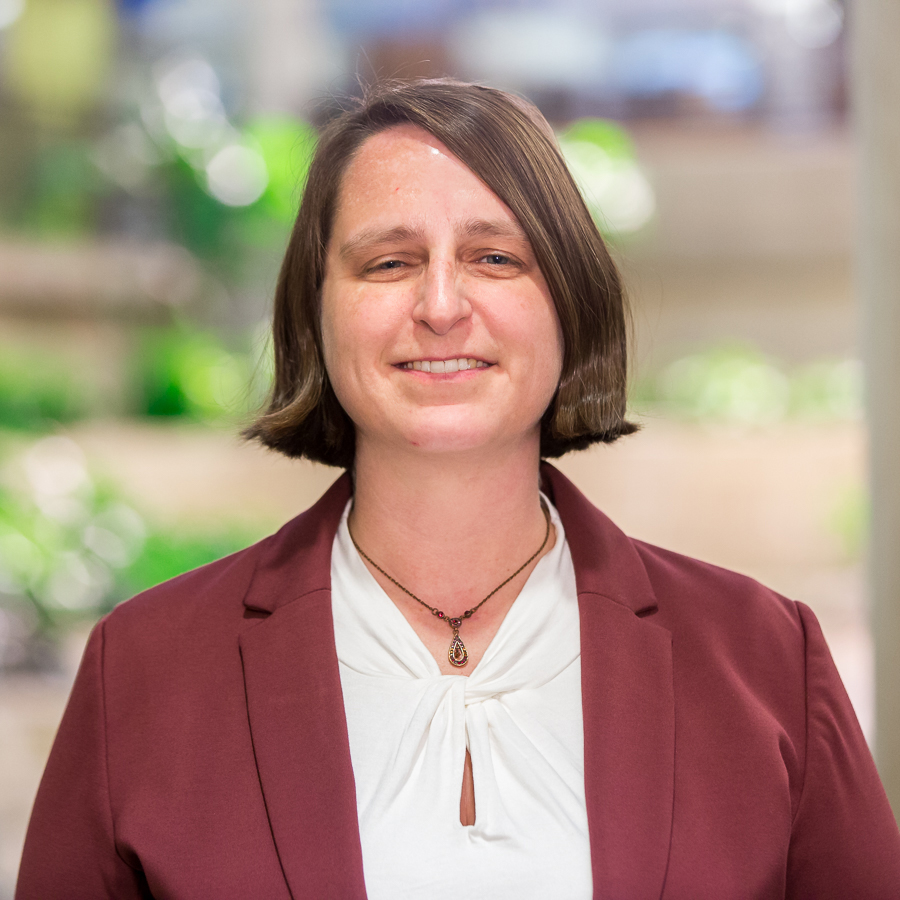
Name: Kendra Kennedy
Present Position: Cultural Resources Specialist, Argonne National Laboratory
Education: M.A., University of West Florida; B.A., University of Notre Dame
Professional Service to SHA and Other Societies: ACUA: Board Member, 2020–present; Underwater Archaeological Society of Chicago (UASC): Archaeological Advisor, 2022–present; Nautical Archaeology Society (NAS): Senior Tutor, 2022–present; Ohio Maritime Archaeological Survey Team (MAST): Board Member, 2017–2020
Research Interests: maritime archaeology; French Colonial, eighteenth to early twentieth-century American
Biographical Statement:
Kendra Kennedy has over 20 years of experience as an archaeologist, both maritime and terrestrial, in the Midwest, Mid-Atlantic, Southeast, and Gulf South. She is employed as a Cultural Resources Specialist with Argonne National Laboratory (Argonne) near Chicago. Ms. Kennedy received her Bachelor of Arts in Anthropology, French, and Computer Applications from the University of Notre Dame and her Master of Arts in Historical Archaeology from the
University of West Florida. She has worked as an archaeological consultant, SHPO compliance reviewer, instructor, and grant writer for private, academic, and nonprofit organizations and state and federal agencies. She specializes in geophysical survey and interpretation and is very interested in the increased use of unmanned and autonomous vehicles—underwater, aerial, surface, etc.—for archaeological survey. Ms. Kennedy is passionate about public outreach and working with citizen scientists to advance the discipline. She currently serves as archaeological advisor to the Underwater Archaeological Society of Chicago (UASC) and was formerly a board member of the Ohio-based Maritime Archaeological Survey Team (MAST). Ms. Kennedy was instrumental in assisting the Illinois State Historic Preservation Office (SHPO) to secure a $100,000 National Maritime Heritage Grant in 2022 for a cooperative project between the IL SHPO, the UASC, and the Chicago Maritime Museum. The grant project involves formally recording numerous submerged archaeological sites in Lake Michigan with the IL SHPO and producing National Register documentation that will facilitate the future of underwater archaeology in Illinois.
Given your qualifications and experience, what do you believe you can contribute to the ACUA/SHA if elected?
If re-elected to the ACUA, I will continue to bring to the Council a nuanced understanding of the various worlds of archaeology and the potential and stresses inherent to each due to my broad range of experience as a terrestrial and maritime archaeological consultant and compliance reviewer (i.e., both sides of the coin) in the private, government, and nonprofit sectors. I will also continue to use my experience in fundraising, grant writing, and technological innovation to support all aspects of my work with the ACUA.
If elected, what priorities would you emphasize, taking into consideration the ACUA and SHA missions and goals, ongoing committee activities, and the management and financial challenges of the society?
My firsthand work with citizen scientists, particularly avocational underwater archaeologists, has provided me with a clear understanding of what archaeologists can and need to do to further educational outreach and encourage responsible public participation in maritime archaeology. If re-elected, I will continue to prioritize increasing ACUA’s outreach to citizen scientists and organizations that work with and train them.
As a current ACUA Board Member, I co-chair a committee that is assessing consultation, compliance review, and access to qualified professionals as these relate to state projects and federal undertakings that may impact submerged cultural resources. The committee is communicating with SHPOs and the National Conference of State Historic Preservation Officers (NCSHPO) to determine how ACUA can best assist SHPOs and advocate for protection of submerged cultural resources in the U.S.
Please include a statement on your commitment to Diversity, Equity, Inclusion, Belonging, and Mattering (DEIB&M).
As a mother of young children at a time when female archaeologists have become a major part of the archaeological work force, I have worked to find feasible ways to facilitate and encourage conference participation for archaeologists with infants and small children. This is especially important in our field since most archaeologists “go where the work is” and are thus unable to rely on the assistance of often distant friends and family. I worked on these issues as part of the accessibility and inclusion committee for the 2022 SHA conference in Philadelphia. Although we were not able to facilitate onsite childcare for the conference, I was successful in working with Karen Hutchison of SHA Headquarters to set aside a lactation space for nursing/pumping mothers at the conference. At Argonne, I am a member of the steering committee for the Parenting and Caregiving Employee Resource Group (PACE) that advocates for employees who are also caregivers and communicates with lab leadership about ways to improve the lab’s outreach to and support for Argonne caregivers.
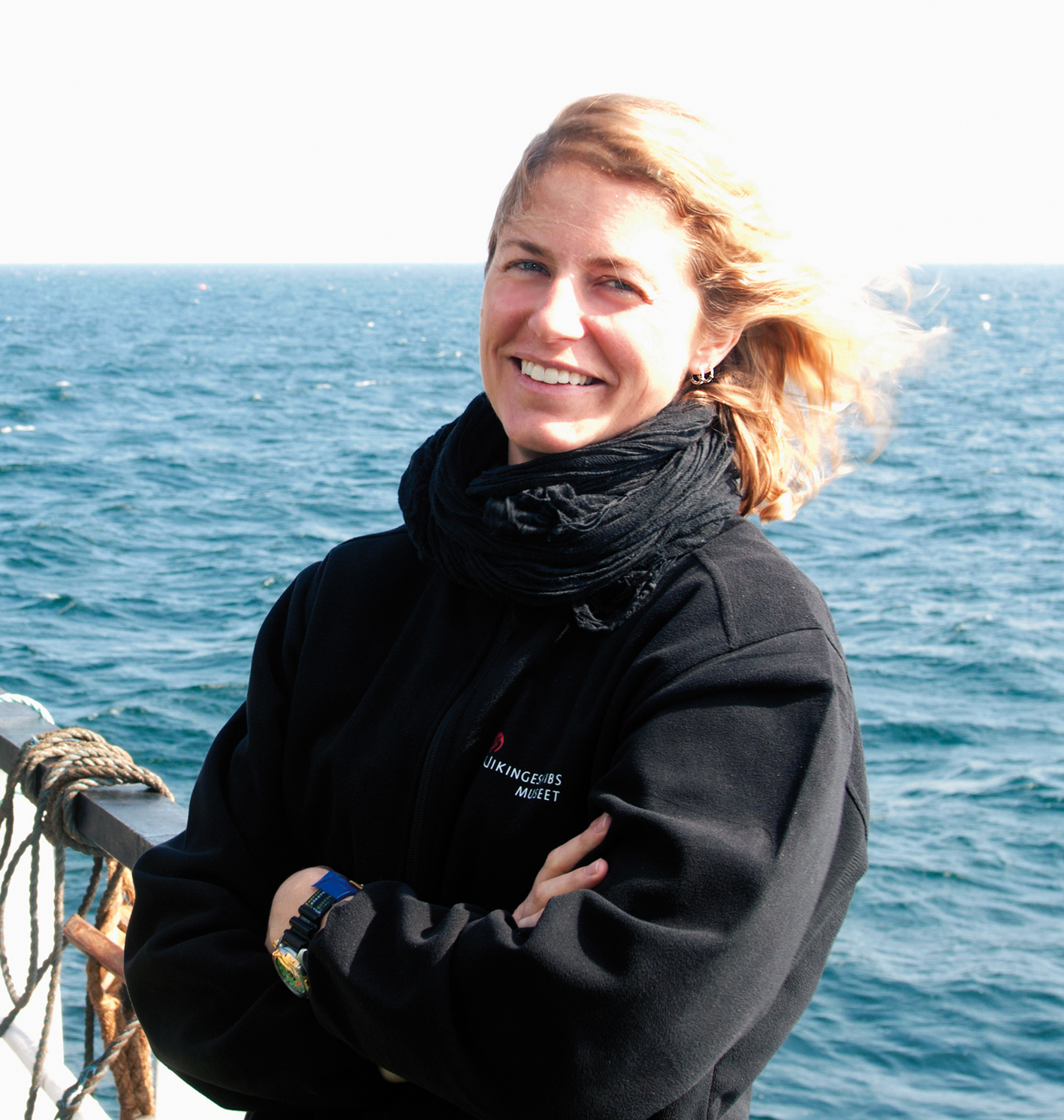
Name: Athena Trakadas
Present Position: Chair/Co-founder, Ocean Decade Heritage Network (ODHN); Editor, International Journal of Nautical Archaeology; External Associate Professor, Saxo Institute, University of Copenhagen (Denmark)
Education: Ph.D., Archaeology, University of Southampton, UK; M.A., Classical Archaeology, Aarhus University, Denmark; M.A., Anthropology (Nautical Archaeology Program), Texas A&M University, USA; B.A., Classical Civilizations, Anthropology (double major), University of California, Berkeley, USA
Professional Service to SHA and Other Societies: SHA: Member, 2020–present; ACUA: Board Member, 2020–present, ACUA sub-committee: Member; Nominations, UNESCO Scientific and Technical Advisory Body (STAB), Diversity and Equity, Annual Conference Abstract Review, ACUA Mentorship Program; SHA HARC: Member, 2021–present; Historical Archaeology: Associate Editor, 2021; I have attended SHA annual meetings since 2011, as co-editor of Journal of Maritime Archaeology.
Other societies: UNESCO UNITWIN University Network for Underwater Archaeology: Institutional representative for University of Southern Denmark, 2015–2019 and ODHN, 2019–present; Danish National Committee for UN Decade of Ocean Science for Sustainable Development: Working Group Member, 2021–30, 2022–present; Bulletin de l’Institut Scientifique (Morocco): Editorial Board Member, 2018–present; Maritime Archaeology Society Esbjerg (MASE): Advisor, 2015–2018; American Institute of Maghrib Studies: Member, 2004–present
Research Interests: coastal and riverine landscape archaeology, ports/harbors, fishing, ethno-archaeology, natural- and cultural heritage management, classical archaeology, Mediterranean, MENA region, Northern Europe
Biographical Statement:
I am a maritime archaeologist whose professional background extends from academia to publication production to policy/capacity development to museology. Currently I am Visiting Associate Professor at the Saxo Institute, University of Copenhagen (Denmark)—developing a maritime archaeology curriculum—and was previously the Honor Frost Foundation Visiting Professor at the Centre for Maritime Archaeology at Alexandria University (Egypt, 2020–21), and Visiting Professor at Aix-Marseille University (France) (2021). From 2018–22 I also co-directed the Maritime Archaeology Research Group as a Guest Researcher at the National Museum of Denmark. Prior to these postings I was Associate Professor of Maritime Archaeology at the University of Southern Denmark (2013–18). I also serve on the Advisory Board of the Koç University Mustafa V. Koç Maritime Archaeology Research Center (Türkiye) and co-supervise two PhDs in maritime archaeology (University of South Florida, Universidad de Cádiz).
In 2021 I was appointed Editor of the International Journal of Nautical Archaeology (IJNA), leaving the Journal of Maritime Archaeology (JMAR), which I co-edited from 2010–21; I also was Associate Editor of Historical Archaeology in 2021. I co-founded and chair of the UN Decade of Ocean Science for Sustainable Development 2021–30 partner, Ocean Decade Heritage Network (ODHN; 2019–present), which runs the UNESCO-Intergovernmental Oceanographic Commission (IOC) endorsed Decade Action “Cultural Heritage Framework Programme.” In addition to consulting to the IOC, I am an Expert Consultant appointed to the UNESCO 2001 Convention on the Protection on the Underwater Cultural Heritage and its Scientific and Technical Advisory Board, teaching in capacity-building workshops and participating in policy forums throughout the Middle East, Africa, and Central Asia since 2011. From 2009–2014 I was Curator at the Viking Ship Museum in Denmark (contract archaeology, publications, and exhibits). I have been a licensed SCUBA diver since 1987 and Commercial Dive Instructor (Danish Maritime Agency) with an offshore certification since 2013. (publications)
Given your qualifications and experience, what do you believe you can contribute to the ACUA/SHA if elected?
My background constitutes a variety of positions—in the public and private sectors, both nationally and internationally–which I feel can help inform perspectives within ACUA and its sub-committees. My professional network is largely based in Europe, Africa and the Middle East, although I have a background in and relationship to North American institutions. If elected, I believe that this profile will help ensure that ACUA has a broader perspective regarding its own aims and issues that affect its members globally.
Additionally, I believe I have applicable experience and wide-ranging skills that can contribute to the societal impact and administrative activities of ACUA. Through professional service on advisory boards and national and international consultancies, especially in my long-term relationship with UNESCO, I am actively engaged in the development of archaeological research methodology, the promotion of capacity building in archaeological practice, and the management of cultural heritage, with a focus on public outreach endeavors. As chair of ODHN—founded to support the role of cultural heritage in reaching UN Sustainable Development Goals within the framework of the UN Ocean Decade—I engage with NGOs such as ACUA, national agencies, and UNESCO programs to ensure that maritime cultural heritage (both tangible and intangible) is integrated into interdisciplinary marine science research agendas, policy, and sustainability management plans. ODHN leads the “Cultural Heritage Framework Programme,” the only endorsed UN Ocean Decade program that addresses cultural heritage, and which serves as an umbrella under which relevant actions take place, particularly those promoting Citizen Science and Ocean Literacy. I would like to contribute the knowledge gained from these forums to help ACUA to continue to formulate its own outreach and policy positions and likewise, bring to ODHN perspectives gained from such an important stakeholder group.
If elected, what priorities would you emphasize, taking into consideration the ACUA and SHA missions and goals, ongoing committee activities, and the management and financial challenges of the society?
Globally, through initiatives like the UN Ocean Decade, stakeholders are addressing the call for a paradigm shift in natural marine sciences. Humanities and Social Sciences—especially archaeology—should not be relegated to serving as a minor partner to the natural sciences within the marine environment: it contributes the context for understanding better the human past and what that can mean for us at present and certainly our impact on the future.
I believe that ACUA can prioritize ensuring that this evolving interdisciplinary perspective is incorporated not only in our own practice, but within how policy is formed, and heritage resources are managed. One of the ACUA mandates is working to educate governments, and this includes international bodies; ACUA is already an Accredited NGO to the 2001 UNESCO Convention, well-positioned to lobby the UNESCO Culture Sector. Cross-institutional awareness is increasing, and I would like to assist ACUA to expand these efforts to UNESCO’s Science Sector, becoming one of the stakeholders changing perceptions of the contributions of Humanities and Social Sciences to the marine sciences within bodies like the IOC. This is also extremely relevant as we face mitigating potentially polluting wrecks and an increase in exploratory seabed mining, with limited discussion in the IOC regarding the protection, conservation, and management of underwater cultural heritage.
In working towards educating scholars, ACUA/SHA also has developed a robust mentoring program, in which I enjoy participating. Further developments, already in discussion in ACUA, would be to look for longer-term follow-ups with mentor/mentees, as well as project placements and scholarship application preparation—those within ACUA/SHA and externally. I believe that assisting future colleagues is a key factor in helping our discipline develop and thrive.
Please include a statement on your commitment to Diversity, Equity, Inclusion, Belonging, and Mattering (DEIB&M).
My experiences in working towards a more diverse and representative community of practice in archaeology has been influenced by my teaching and research experiences on three different continents, especially in those areas where the legacies of earlier colonist histories are ever-present. I aim to present a range of voices and examples in my teaching (and listening), as well as participate in field projects that include a variety of stakeholders outside of academia. I am a member of the ACUA sub-committee on Diversity and Equity; in 2021, I co-chaired the SHA panel Intentionally Transformational: Supporting the UN Decade of Ocean Science for Sustainable Development through a Conversation on Inclusion.
As an editor of IJNA and JMAR, I also aim to provide a platform where diverse voices, practices and knowledge in our field can be heard and included (editorials e.g., 2020; 2021; 2022). I actively reach out to heritage practitioners in regions I have identified as under-represented in our journal. As part of the my tenure at IJNA, I organize bi-annual author webinars—and here I have made it my mandate to invite Early Career Researchers, especially from non-traditional institutions and under-represented regions. Additionally, I have held training workshops on developing articles for publications to ECR and diverse groups: the Maritime Archaeology Graduate Symposia (2021, 2023), and UNESCO 2001 Convention-affiliated workshops in the United Arab Emirates (2022), Columbia (2021), Kenya (2021), and Iran (2016).
I have also co-authored the ODHN’s DEI statement; additionally, two of the main operational objectives of ODHN’s Cultural Heritage Framework Programme are to develop capacity/early career support and enable greater diversity/representation: almost 50% of the CHFP annual budget is to facilitate travel for these stakeholders to participate in meetings and training workshops.
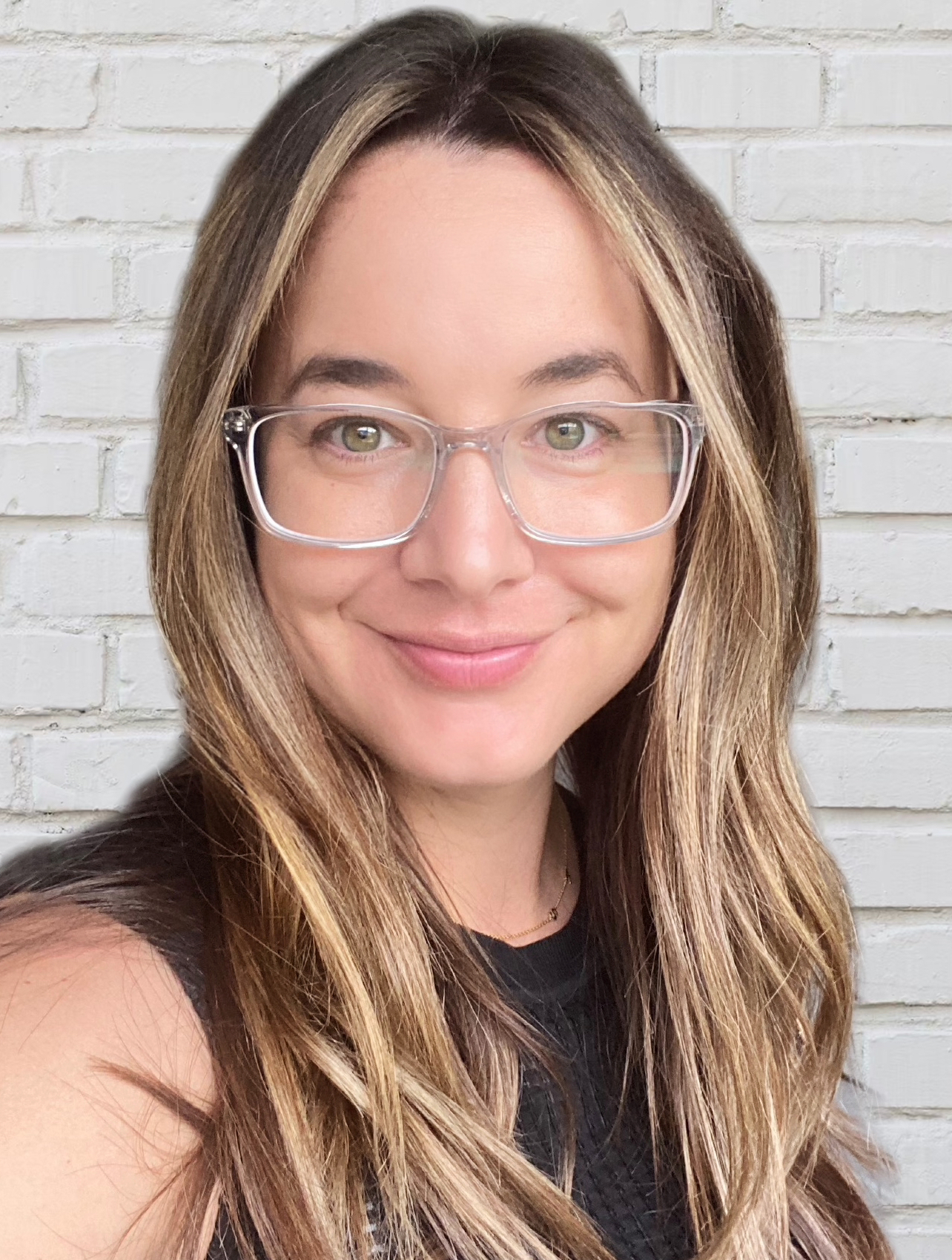
Name: Jeneva Wright
Present Position: Archaeologist for Climate Change, WASO Cultural Resources, Partnerships, and Science Directorate, National Park Service
Education: University of Miami (PhD, in progress); East Carolina University (MA); University of Montana (BA)
Professional Service to SHA and Other Societies: ACUA Board of Directors, Vice Chair (2023-present); ACUA Board of Directors, Secretary (2020-2023); SHA member (2013 – present); Register of Professional Archaeologists (2015 – present)
I currently serve on several SHA committees through my service with ACUA, including the SHA Heritage At Risk Committee, with which I have served as co-editor of a special issue of Historical Archaeology on the climate crisis, as well as the ACUA Publications Committee, Diversity and Equity Committee (with which I collaborated on ACUA’s formal antiracism statement), and serve as ACUA Liaison to the SHA Ethics Committee.
Research Interests: Climate change impacts and adaptation strategies for archaeological sites, World War II submerged cultural heritage, battlefield archaeology, history and archaeology of the global slave trade, marine remote sensing data acquisition and interpretation, marine corrosion modeling, and citizen science
Biographical Statement:
I serve as the NPS Archaeologist for Climate Change, working with the Climate Change Response Program out of Fort Collins, Colorado, to develop research and efforts to address the impacts of climate change and sea level rise across the breadth of the NPS system. Prior to this assignment, I supported the Partnerships and Innovations Directorate at the Department of Defense POW/MIA Accounting Agency by serving as lead underwater archaeologist for partner development and field projects. My research and publications on climate change impacts to archaeological resources began during a graduate internship at Biscayne National Park, and continue during my tenure with the NPS Submerged Resources Center. I currently serve as Vice Chair of the Advisory Council for Underwater Archaeology, serve as a board member on the NPS National Dive Control Board, and am conducting a PhD at the University of Miami Abess Center for Ecosystem Science and Policy in collaboration with the Rosenstiel School of Marine and Atmospheric Science. I am a diver, runner, mom to four-year-old Sullivan, and love a strong cup of dark roast coffee.
Given your qualifications and experience, what do you believe you can contribute to the ACUA/SHA if elected?
The core of my professional experience centers on collaboration and teamwork, using cooperative partnerships to connect multidisciplinary professionals with the archaeological discipline for actionable science. While this approach is particularly important for work addressing climate change, my commitment to communication and bridge-building results in broad inclusive partnerships that acknowledge competing priorities to create shared goals to tackle big challenges. Given the diversity of stakeholders in our field and the resultant wide range of concerns, this dedication is an asset I would direct toward the development of innovative and productive solutions to further ACUA goals.
If elected, what priorities would you emphasize, taking into consideration the ACUA and SHA missions and goals, ongoing committee activities, and the management and financial challenges of the society?
My priority would focus on outreach to multi-disciplinary partners. Whether the challenge is tackling the next frontier of deep-water investigations, understanding the devastating threats that climate change poses to submerged and coastal sites, or fostering inclusivity and diversity to champion all members of our field, I believe that solutions are best sought by expanding our horizons and seeking pluralistic viewpoints and expertise. Underwater archaeology cannot exist in a vacuum, and my emphasis would be on forging connections to increase sustainability, efficiency, and knowledge transfer so others can build on lessons learned and act.
Please include a statement on your commitment to Diversity, Equity, Inclusion, Belonging, and Mattering (DEIB&M).
I am dedicated to promoting ethics, respect, and equity in the field of underwater archaeology. Currently my focus is directed to environmental justice and disproportionately impacted communities facing not only the threats of climate change on homes and communities, but also on histories, culture, and sense of place. I work to protect and preserve archaeological sites threatened by climate change, but emphasize not only the protection of physical artifacts, but also cultural landscapes, hidden histories, and connections to descendant communities, as well as working to meaningfully integrate Traditional Ecological Knowledge and other Ways of Knowing into climate change response practice. In my work to date with the ACUA, I have also served on the Diversity, Equity, and Inclusion Committee, including collaborating on ACUA’s formal antiracism statement, and supporting reviews and selections of students competing for the Diversity, Equity, and Inclusion Student Travel Award.



